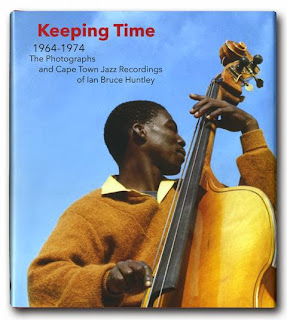Today, Electric Jive is proud to present another compilation of hit singles from the days when mbaqanga was the sound of the townships - Indoda Mahlathini, released in 1969 on the Motella label, is a twelve-song LP that features some of the best-selling Mavuthela material of the past year. As is normally the case with this kind of record, the listener will find that they simply must get up and start grooving to the great vocal jive sounds offered here.
Although this LP bears his identity, it is rather interesting that Simon ‘Mahlathini’ Nkabinde appears only on four of the twelve songs! This particular time period was the absolute peak of Mahlathini’s popularity. The rightful king of all the groaners, this crowd-puller was the only singing star who attracted fans from right across the board – kids as young as ten would attend his shows, as well as elderly people who scrambled to the halls in their walking frames. It is obvious that the compilers of this album wanted to capitalise on Mahlathini’s enormous success by using his renowned moniker as the title of this record. The King’s bellowing groans can be heard on his solo numbers “Imbodlomane” and “Gabi Gabi”, as well as “Sengibuya Emarabini” which is recorded with the Mahotella Queens and “Akashaywa Umfazi” by the Sweet Home Dames.
From Mavuthela’s start back in 1964, the same team of ten (or so) female singers had recorded under the various group names dreamed up by Rupert Bopape. Following the recruitment of more singers during 1965, Bopape took one of the names and built it up into a regular recording and touring line-up: the Mthunzini Girls (Julia Yende, Windy Sibeko, Teddy Nkutha and Virginia Teffo) were the junior group of singers. The Girls also recorded under a second name, Izingane Zo Mgqashiyo. The senior female group at Mavuthela performed and recorded as the Mahotella Queens, but also cut records under various other (non-touring) names including Izintombi Zo Mgqashiyo, Marula Boom Stars, Soweto Stars and Sweet Home Dames. Some of these names were interchangeable, and it is not unusual to listen to a record credited to the Sweet Home Dames but featuring the voices of the Mthunzini Girls (or vice versa).
“Jive Didiza” was one of the Mthunzini Girls’ biggest-selling hits of the late 1960s. Possibly recorded as Mavuthela’s answer to the rival Izintombi Zesi Manje Manje’s celebrated 1967 top seller “Isidudla sika Joseph”, this number features the robust lead vocals of Yende who sings “siyatshitshizela, isidudla sikaMahlathini” (we’re moving like young girls, Mahlathini’s big women)! “Tete Muka No. 2” is a song that has an amazingly crazy guitar intro and a fast-paced beat that just won’t quit – and that’s definitely not a bad thing. The group’s other track on this LP is the wonderfully rumba-tastic “Sangena, Sangena”, a driving and dynamic number that happens to be my favourite one. The late Windy Sibeko’s distinctive alto voice can be clearly heard on these two classics.
The senior Mavuthela female group appears on four tracks on Indoda Mahlathini. One of them, “Sengibuya Emarabini”, uses the familiar and famous Mahotella Queens name. The usual rhythmic mgqashiyo beat works its magic in this lovely number composed by Rupert Bopape and Marks Mankwane. The other three numbers are credited to the Sweet Home Dames and feature the normal Mahotella line-up of the day, including Mildred Mangxola (who recently retired from the current line-up of the group in 2013), Juliet Mazamisa, Ethel Mngomezulu, Thoko Nontsontwa and Nobesuthu Shawe. Mangxola’s two compositions, “Yeka Amanga” and “Akashaywa Umfazi”, are yet another couple of examples of solid girl group harmony. Another gem is Shawe’s composition “Dumazile”, the complicated tale of a couple of lovers.
Later into the 1960s, with more young female vocalists joining the roster, Bopape took another of the pseudonyms used by the senior group and built up a third unit of junior singers. The Dima Sisters, who appear on three songs, included Sheba Malgas, Mavis Maseko, Nancy Ngema and Julia Ngubane. Various Mavuthela staff including Shadrack Piliso, Ellison Themba and the two Lerole brothers contributed to the group’s material. Following the departures of several vocalists in the early 1970s after a salary disagreement, the most talented singers in the lower-ranking Mavuthela groups were promoted into the senior Mahotella Queens line-up. Several Izintombi Zomoya members joined the frontline of the Queens, with two of the Dima Sisters also coming on board – Nancy Ngema and Sheba Malgas.
While you’re waiting for this LP to download, you’d best get your dancing shoes ready and get ready to do some heavy jive mgqashiyo until you drop. Enjoy!
VARIOUS
INDODA MAHLATHINI
produced by Rupert Bopape
Motella LMO 110
1969
Vocal Jive
 1. Ubhek'uZulu - (H. Nhllapho)
1. Ubhek'uZulu - (H. Nhllapho)


















